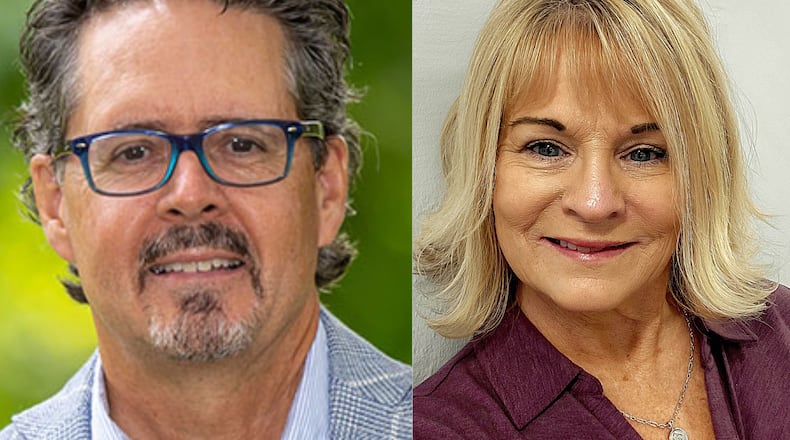>> To watch the programs via livestream, go to www.facebook.com/springfieldusatv.
“The idea is, there needs to be some additional information out there to help people understand our system a little bit better, but there also needs to be an opportunity for people to come together from different backgrounds and have a conversation about these issues,” said Rob Baker, political scientist and American politics specialist at Wittenberg University.
Baker said the idea came from Tracey Tackett, a Springfield city commissioner and a former student of his, who noticed in her new position there are strong party divisions. She came to Baker with the idea of doing something about that.
United Way of Clark, Champaign & Madison Counties director Kerry Pedraza was a natural partner in the effort too, Baker said.
Baker said the whole idea is founded upon what Greek philosopher Aristotle referred to as “civic friendships,” which says that we are in it together as a community and also need to be open to others’ concerns and disagreements while being willing to work through them.
“Aristotle was arguing that this idea of being a citizen is really one of having responsibilities that go along with that but also getting the advantages that come with a community that’s doing well,” Baker said. “We’re civic friends; we may not know everybody, but in the context of the community, we’re civic friends in that sense and if we can build and strengthen those relationships, communities that are able to do that better are more robust and resilient.”
Pedraza said the sessions are designed to be both educational and participatory, and several round tables will be set up to facilitate discussion. Light snacks and refreshments will be available, and doors will open at 5 p.m. with sessions beginning at 5:30 p.m.
She said organizers hope to create a space for everyone to come, and they will set up space for 40-50 people. Community members can attend as many or as few sessions as they are able.
“What we really want is for people to not feel intimidated by coming; we want this to be a community discussion,” Pedraza said. “So we’re hopeful that some young people in high school will come, we hope that we can attract some of our senior population who have quite some experience and then just maybe first-time voters who have never been involved in any kind of political discussions before.”
Pedraza said she hopes the sessions feel comfortable, like “we’re all having a discussion around our kitchen tables.” She said the event will be a great way to meet neighbors.
Baker said his colleagues may lead their sessions differently, but he intends to start his by laying out a basic question for each table to try to reach a consensus. He said they’ll have a discussion, and he’ll share what the literature and scholarship says about the topic, then once again open it up for discussion.
In planning the event, the professors emphasized the importance of face-to-face interaction and dialogue, Baker said.
The professors landed on six sessions, but may add some if the need arises, Baker said. He said the sessions will absolutely conclude before early voting for the presidential election begins on Oct. 8.
A website will be made available with a suggested reading list for prior to and after each session, and for those who are less comfortable with technology, there will be a printed resource paper, Pedraza said.
Organizers hope they can address and overcome the “us vs. them” polarized political mentality in these sessions, Baker said.
“We must recognize that we are friends in the larger communal sense, and those bonds of friendship have really frayed and we’ve become as you say, haters of each other, rather than recognizing each others’ right to disagree and try to bridge those differences,” Baker said.
Sponsors of the project include Cox First Media, the Springfield News-Sun, the Springfield Foundation, Crabill Family Foundation, the Springfield Museum of Art, the Susan Hirt Hagen Center for Civic and Urban Engagement at Wittenberg, Seven Wing Creative and the United Way of Clark, Champaign & Madison Counties.
The following sessions will be held at the Springfield Museum of Art:
July 15, led by Baker: What Does Good Citizenship Mean to You?
July 29, led by political science professor Staci Rhine: Confirmation Bias and Media Consumption
Aug. 12, led by philosophy professor Julius Bailey: The American Dream Under Stress
Aug. 26, led by Baker: What are America’s Values?
Sept. 9, led by history professor Tom Taylor: Polarization, Public Perception of the Legal System, and the Legitimacy of the Rule of Law
Sept. 23, led by Baker: How Does Gerrymandering Undermine Democracy, and What Can We Do About It?
About the Author

